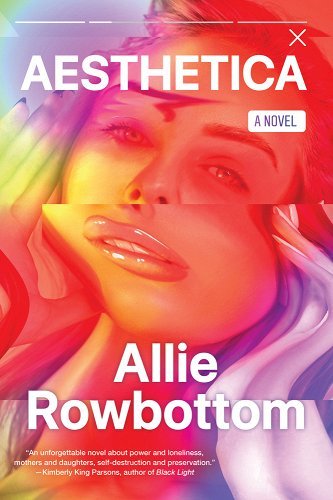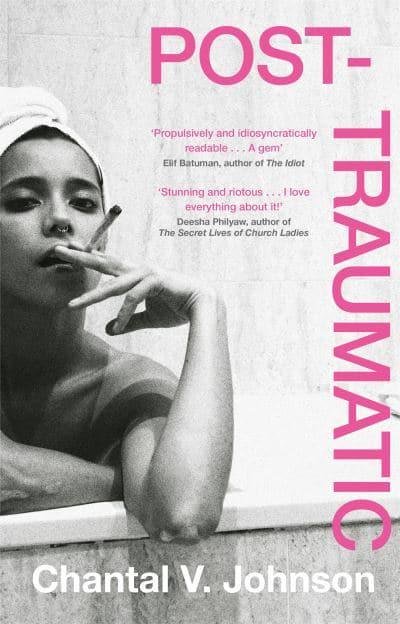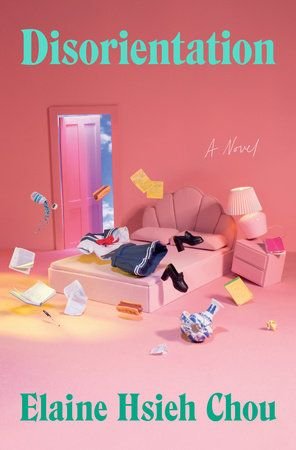As I started compiling my annual best-of-reading list a few weeks ago, a common denominator emerged: everything that immediately came to mind had been written by a woman. Beyond my obvious self interest in this category of work, it also made sense in a year when womanhood felt particularly precarious and dangerous. The social safety net’s gaping holes made ever more apparent by the ongoing COVID crisis. The overturning of Roe v. Wade by a Supreme Court not just hostile toward, but actively opposed to, bodily autonomy for anyone but cisgendered white men. The women and girls of Iran risking imprisonment or worse as they pushed back against their own diminishment and disempowerment. The heightened—and disturbingly ‘90s-reminiscent—body chatter on “trends” like buccal fat removal and BBLs and the proclaimed resurgence of “skinny” instead of “curvy” as desirable, at least for now.
I craved writing that would capture and question what it meant to be a woman in this world, in this moment. It is something I have spent a lifetime attempting to do for myself, and something I’ll certainly remain doing until the minute I die.
For almost a decade, I’ve shared a list of books, poems, and essays to match the year in question: 22 of the best things I read in 2022, for example. But the last 12 months were full of radical upheaval in my life, which meant I read far fewer books than I hoped, and it seemed silly to bind myself to some rule that only ever mattered to me. The one tradition I did maintain to was to only include things published this calendar year. (Though I will preemptively state that I’m not sure if Nicole Callihan’s poem was published elsewhere and earlier).
So, here are stories of women grieving. Women grappling with beauty. Women reckoning with abuse. Women seeking. Women lusting. Women failing. Women owning their desires. Women, just . . . womening. Read them and weep. Read them and cackle. Read them and feel awed. Read them and, if you’re like me, find recognition.
Aesthetica by Allie Rowbottom: Rowbottom tells the story of a former influencer who decides to undergo Aesthetica, a revolutionary—and extremely risky—procedure meant to undo fillers, Botox, and augmentations of all sorts to reveal the untouched, naturally aged face one should have. Woven with anxiety and feminist theory and social-media critique—and anchored by a mother-daughter relationship that tugs at me still—it’s a novel written with surgical precision and a palpable sensation of dread and longing.
Post-Traumatic by Chantal V. Johnson: Johnson’s radically original novel about sex, striving, family dynamics, and (obviously) trauma made me laugh out loud. When Vivian, a public defender who has had it with her job, her poisonously dysfunctional mother and brother, and men in general, aims to start fresh, she realizes she might first have to spiral out of control in order to gain some.
Vladimir by Julia May Jonas: It’s unfortunate that a novel about a woman on the other side of 50 experiencing desire is so rare, but…it is so rare. Jones’s novel about obsession and, well, horniness, is a tense, unexpected, and delightfully complicated story I couldn’t put down.
“A Recipe for Forgiveness” by Helen Longstreth: Longstreth’s memory of her father’s love, decline, and beloved sausage pasta has stayed with me since I first read it in July. It’s rare to be able to render a loved one in all their shades, with all the honesty that can be mustered, and all the care they deserve. While I didn’t know Longstreth’s father, obviously, this ode to a parent who couldn’t be rescued from himself made me miss him, too.
Disorientation by Elaine Hsieh Chou: When Ingrid, a PhD student struggling to make it in academia, discovers the disturbing truth about the Chinese-American poet who is the begrudging focus of her dissertation, all hell breaks loose on campus and in her personal life. It had been years since I read a true satire, and I’ll admit, it took me time to settle into some of the more absurd aspects of Chou’s novel. But I’m glad I was capable of it, because this book is a stunning achievement, a tour de force, and an incisive look at the toxic ways racism and misogyny permeate not just institutions, but our most intimate relationships. This is the kind of novel you want to talk about, and it made for one of the most spirited gatherings of my book club all year. I can’t wait to read what she writes next.
Lost & Found by Kathryn Schulz: Schulz’s reflections on her father’s death and falling in love—two things that happened in her life in a compressed, chaotic span of time—is nothing short of poetic. With resonant writing that plucks influence from nature, science, religion, and literature, Schulz captures loss and discovery, pain and pleasure, ends and beginnings in one awe-inspiring collection of impressions and stories.
Pure Color by Sheila Heti: No one really writes like Sheila Heti writes. I’ve been enamored not just of her way with words, but of her one-of-a-kind worldview, since I read How Should a Person Be so many years ago. This tender, verging on psychedelic novel about a young woman who becomes a leaf (really, that’s something that occurs in this book, and yes, it makes perfect sense) explores what it means to be a soul in a body with humor and clarity.
“The Extravagant Stars” by Nicole Callihan: In a poem anchored by statistics both made-up and real— 1 in 2 women can’t remember 1 in 2 things—Nicole Callihan ruminates on the desire to overcome ourselves, finding faith in what’s bigger than us, and what it means to persist. I came across this remarkable piece in one of my favorite poetry podcasts and newsletters, “The Slowdown,” which is hosted by U.S. Poet Laureate Ada Limón. (Do you subscribe? If not, you should subscribe.)
The School for Good Mothers by Jessamine Chan: Chan’s dystopian novel takes place in a world where mothers deemed failures by the state are sent to reeducation centers. Their only hope of reuniting with their kids demands compliance, cooperation, and participating successfully in a disturbing parental simulation. If you are not up for having your heart irrevocably broken, do not read this book. But seriously, read this book.
I’m Glad My Mom Died by Jennette McCurdy: Speaking anything but “respectfully” of the dead remains one of our most persistent cultural taboos — and if the title of former tween star Jennette McCurdy’s memoir doesn’t make it clear, it’s a taboo she’s uninterested in upholding. Raised in a Mormon family with very little money or stability, McCurdy’s success as a child star became her mother’s obsession. The truth is, it is one thing to have a remarkable life, and it’s entirely another to be able to tell a remarkable life story. McCurdy has done both in a riveting account of abuse and recovery and growing up.


